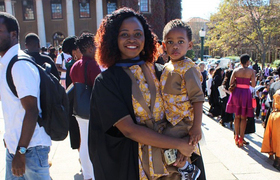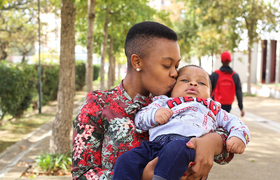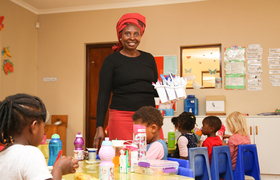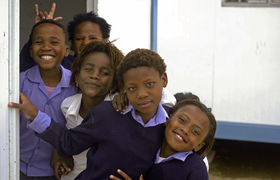Reflections of a new mother’s return to academia
10 May 2019 | Story Carla Bernardo. Read time 8 min.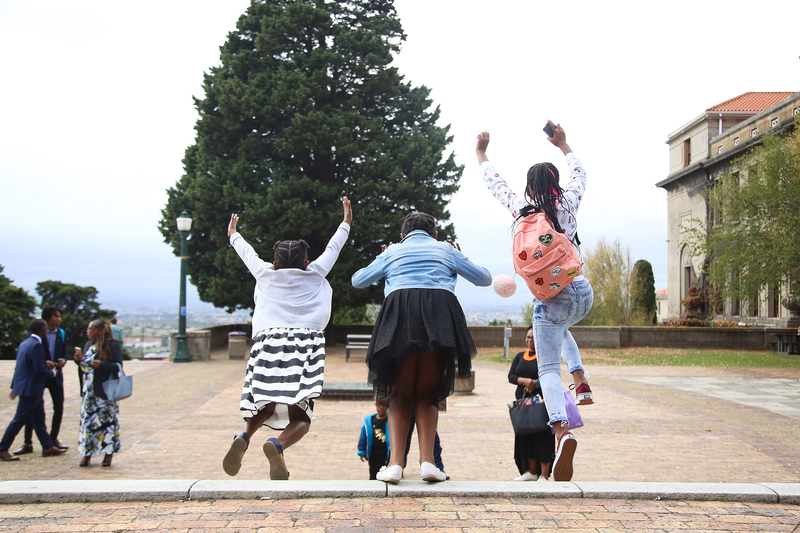
The parents in the University of Cape Town’s (UCT) campus community are diverse in position, pay class, marital status, gender and experience. The Department of Sociology’s Dr Natasha Vally is one of them. Here she provides a deeply personal account of returning to academia as a new mother.
A week back in academia
As members of academic staff or postgraduate students in academia, we generally understand that it is important that there is space for parents (overwhelmingly mothers) to bring our children to our workplace. I knew that it was fine to bring my small child, still breastfeeding, to a seminar that coincided with the end of my maternity leave.
People were very warm and excited to see both me and the baby. They asked interested and genuine questions.
I had seen only the same 15 people for the previous four months and feared I would not be able to make my mouth move into word-sounds that weren’t about burping. Here I was though, saying things bodily-fluid-unrelated and feeling welcomed.
Then the conversation ended. Not one person offered to hold the baby while I had a cup of tea. Or soothe him outside while I tried to listen to the fascinating seminar. In a staff meeting, a beloved colleague took him from me without fanfare and I nearly cried. In that first week, humanity was divided into those who offered to help and The Others.
On one of those initial days, a senior male academic ‘humorously’ asked, “Is this now a creche?” That comment was so expected and theorisable that my pre-baby brain had already built up the immunity to rationalise and fight it. My isolation echoed instead in people’s inability to see the work of mothering – in that seminar, at that desk, in that meeting, carrying bags up those stairs – rather than the acceptable presence of the figure of mother.
In the academy, even welcoming that “figure of the mother” is not uniformly extended. Service staff still do not enjoy the same, generally open, environment in which to bring children to work: a reality exacerbated by outsourcing. The understanding that children will sometimes accompany their carers to work should not be taken for granted: It is as a result of the gains of feminists within and without the academy.
“We need to personally and structurally alter the ways that we welcome mothers so that we do more than acknowledge the legitimacy of the presence of their children.”
However, as a mother, I now realise that our ongoing work and struggles need broadening. We need to personally and structurally alter the ways that we welcome mothers so that we do more than acknowledge the legitimacy of the presence of their children. We need to change the superficiality of welcome that ignores care.
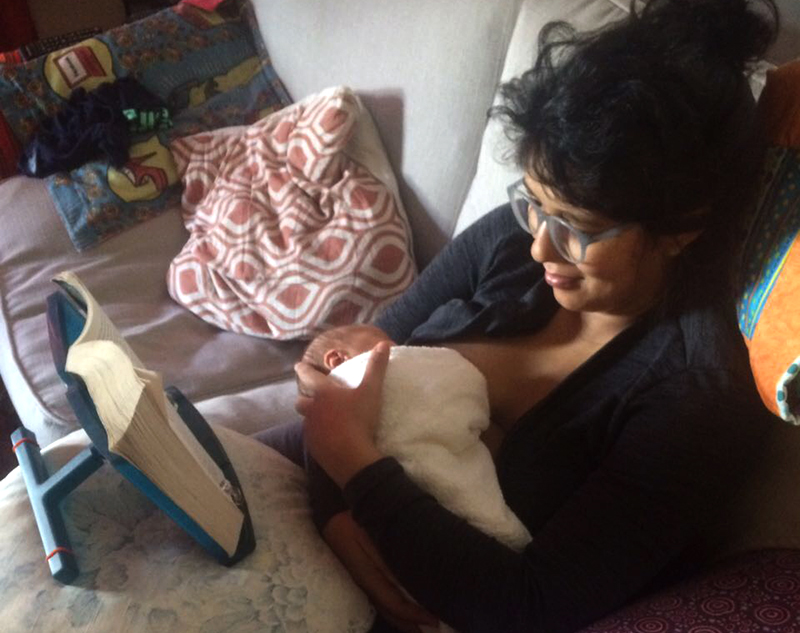
Care involves offering practical assistance to parent colleagues. Show up.
Care involves asking after parents and not only their children.
Care involves grasping that maternity leave is not a holiday; it’s an emotional, physical, exhausting, and sore schlep.
Care involves breaking down the false binary between intellectual and physical labour.
Care involves an end to outsourcing and concrete actions that support parents’ emotional, physical, and economic well-being on and off campus.
Care involves understanding that parents (women disproportionately) go home and do even more work in their homes.
Care involves making resources available for parents who travel either to take their children with them or to afford childcare while they’re away.
Care involves thoughtfulness and support for the many permutations of family that make up our community. This means paid and reasonable leave for caregivers – whether they’re adopting, fathering, being a guardian or growing families in all the ways that we do.
“A magical seven hours stretched their way into the distance unsullied by vomit and nappies and burping.”
Two weeks back in academia
The decision to send our son to crèche was one my partner and I took politically and thoughtfully, and we were confident in the choice and our son’s happiness and safety. I missed my son only inasmuch as I acknowledged his absence; no part of me was longing and no part of me felt shame for this. I was a mother and a scholar and now was my time to scholar.
A magical seven hours stretched their way into the distance unsullied by vomit and nappies and burping. I was the Argonaut of these beautiful shiny, shiny hours and I would build the most stable hull any journal-article boat could ever dream of sailing! I was even making cheesy metaphorical references to scholarship.
It sank. I sank.
I read the “guidelines for submissions” section of the journal three times. By the end, I could remember only the name of the journal. Typing seemed arduous and strange. The first few months of motherhood felt like trying to swim through kelp. I had been comforted by my ability to write and read so the return to work offered familiarity and engendered confidence. And yet, here I was at my computer with heightened disorientation.
I was concerned that I would never be able to read a text or discuss a paper or write ever again.
More than a year back in academia
Over the year, writing has become easier. I still don’t write or read in the same ways that I did before becoming a mother. Sometimes I wish I could go back to my “before” brain.
“I still don’t write or read in the same ways that I did before becoming a mother.”
I have been held by knowing that I relate to texts differently than I did before motherhood. These are not only academic materials related to motherhood – very few of them are. They are books and words that just carry a different weight. This is partly because I have only such a small amount of time to read that I make different reading choices; my time has a different valence.
In the past few months we’ve been asking our child, “Where’s baby?”, “Where’s Mama?”. It’s a strange thing we do with children as they realise they are of the world and different to their primary caregivers. Every now and then when we ask him, “Where’s Mama?”, he points towards me.
These days when I think about where I would point, to acknowledge my existence, I know that I would point not only to my “after” brain, but also to my “after” heart.
We have so much to do that being sentimental feels almost shameful. Care involves sentimentality and seriousness.
I’ve started to think and work a lot more on climate change, not only because of the hackneyed “future generations” (although this too) but because motherhood has solidified that every decision I make is a political decision and one that orients my work towards, or away from, a better world.
 This work is licensed under a Creative Commons Attribution-NoDerivatives 4.0 International License.
This work is licensed under a Creative Commons Attribution-NoDerivatives 4.0 International License.
Please view the republishing articles page for more information.







